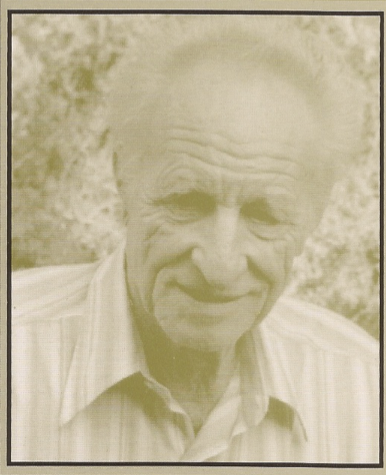A Man and His Paper (a
personal sketch)

(Henry Geiger
August 10, 1908 – February 15, 1989)
MANAS, a "weekly journal of independent inquiry," ceased publication on December 28, 1988, not quite 41 years after its first issue. Henry Geiger, the man who conceived the publication and wrote almost every word of each eight-page issue, died February 15, 1989, at the age of 80.
Such was Geiger's passion for anonymity that his name appeared in his weekly only once or twice a year, and then only in the statement of ownership and management required by law. That same statement always reported the small circulation of MANAS, somewhere between 2,000 and 3,000 subscribers. But, as Robert M. Hutchins once put it, "They're the 2,500 most interesting people in the world."
Hutchins, former president of the University of Chicago, was one of very few contemporary writers who wrote for MANAS. Others ranged from Caryl Chessman to Marc Chagall, from Henry Miller to E. F. Schumacher (whose classic essay "Buddhist Economics" was published first in the United States in MANAS). The psychologists Carl Rogers and Abraham Maslow, the poet/farmer Wendell Berry, and social critics such as John Holt and Theodore Roszak also wrote occasionally for the unusual "paper," as the editor called it.
But above all, MANAS was Henry Geiger, a man without elaborate formal education, who had been variously a chorus boy on Broadway, a journalist, a conscientious objector in World War II, a commercial printer, and a lecturer and leader in The Theosophy Lodge in Los Angeles. He really meant it when he said MANAS would present "viewpoints and ideas, not personalities." Geiger's technique was to quote from and reflect on his pantheon of heroes and heroines: Plato, Gautama Buddha, Lao Tse, Gandhi, Tom Paine, Emerson, Pico della Mirandola, Simone Weil, Jose Ortega y Gassett, Abraham Maslow, Hannah Arent, Thoreau, and a host of others. He considered these men and women to be eternally present through their work, available for stimulation, inspiration, and dialogue, and above all, for the building of one's own philosophical stance.
There was no better companion in that process than Henry Geiger. Abraham Maslow once called him "the only small 'p' philosopher America has produced in this century"' and a Canadian journalist who read MANAS for six months but had never met Geiger wrote a feature column about him entitled "Socrates Lives Again in Los Angeles."
His passing, and the cessation of MANAS, leaves an abyss in the lives of all who came to know him through his remarkable and unique journal.
— Richard Grossman

